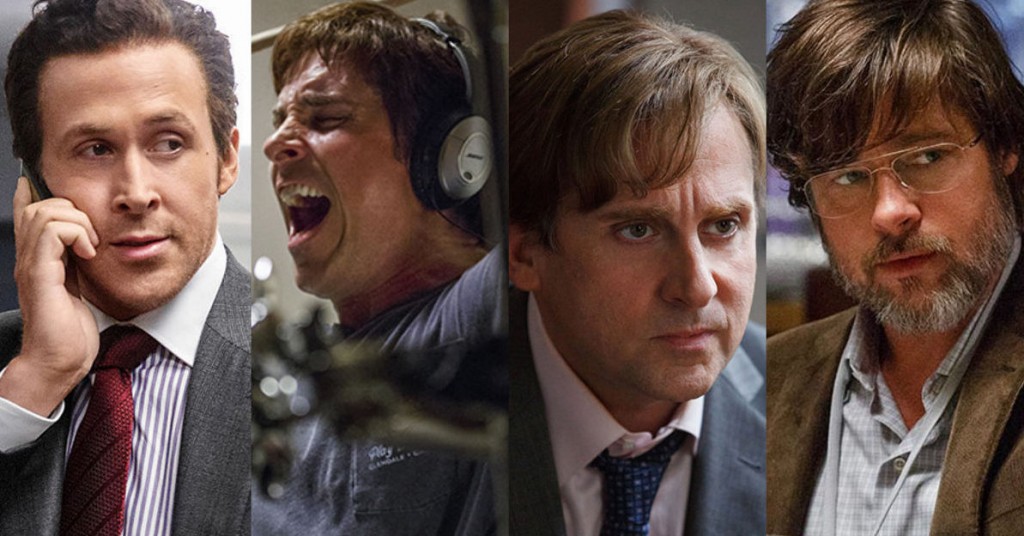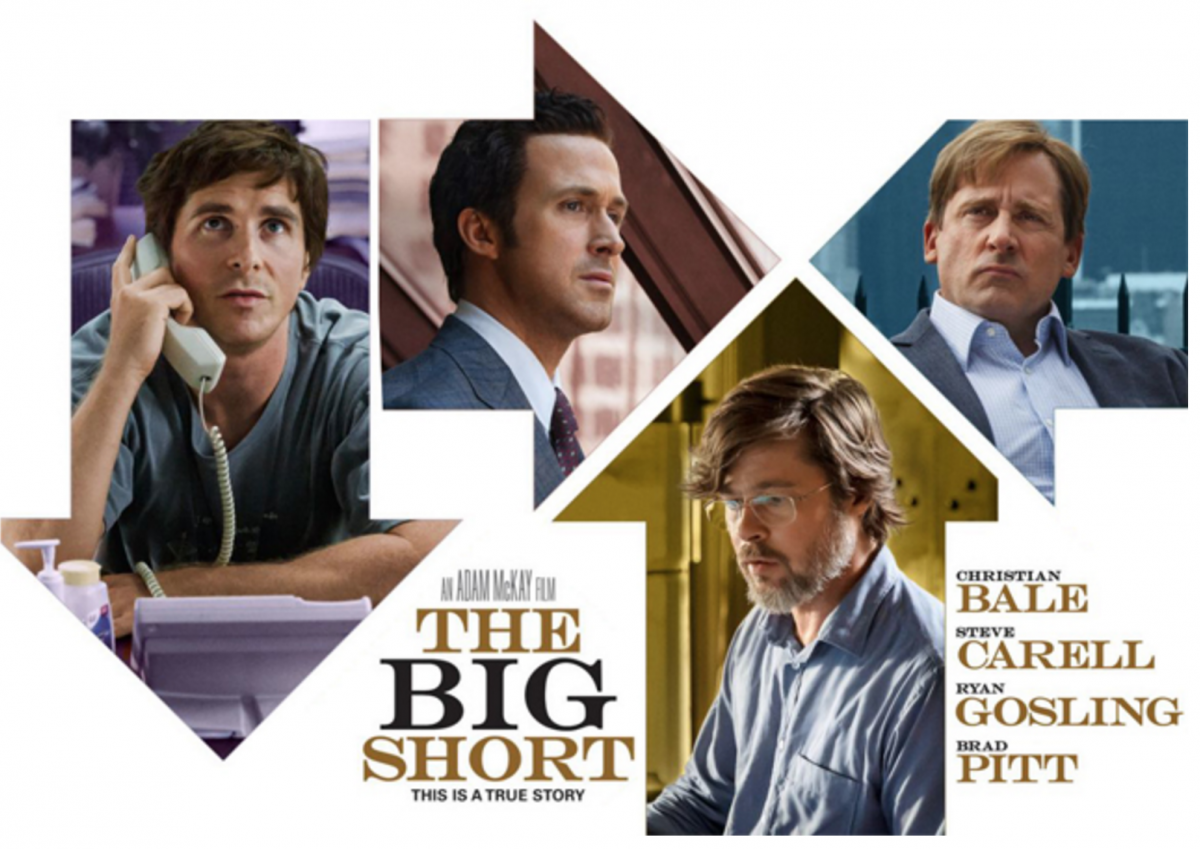
The economics of the Big Short, explained
Starring Christian Bale, Steve Carrell, Ryan Gosling and Brad Pitt, The Big Short (2016) tells the story of the 2008 financial crash and the men that made big money betting that things would go wrong. But what exactly was the ‘Big Short’, and what did it mean for the global economy?
A film about finance! Who’s going to watch that?
The financial crisis, and finance in general, aren’t the usual fare of blockbuster movies. You’ll probably never see The Rock playing the Chancellor of the Exchequer. But in recent years, cinema has provided a useful window into a world that remains mysterious to many, despite the effect it has on all our lives.
The Big Short was written by financial journalist Michael Lewis. His previous book Moneyball: The Art of Winning an Unfair Game, which was ostensibly about baseball statistics, may not have made for the greatest elevator pitch, but the film adaptation, also starring Brad Pitt, was nominated for six Oscars and took over $100m at the box office, proving that stats can make for compelling drama.
What’s the story?
Michael Lewis was a bond salesman on Wall Street before he became a writer, and his insight and experience enabled him to pen one of the most essential accounts of the 2007-2010 financial crisis, called The Big Short: Inside the Doomsday Machine. First published in 2010, the book tells the story of the mounting problems in the US housing and mortgage markets that preceded the crash, and the select few people who not only saw it coming, but managed to turn that prediction into big profits for themselves.
How did they do this?
Essentially, they bet that the US housing market would crash, using a process known as ‘shorting’. By doing this investors can make money out of products losing value, as well as gaining value, and successes can be made from the failure of others.
Most of us when buying a house take out a loan (mortgage) and pay back the purchase price over time. We also usually hope that the value of the house we buy will go up not down. In the US, many people had come to assume that house prices would always rise, because they’d risen without fail for many years. This attitude saw mortgage lenders offering riskier and riskier loans to people who’d only be able to make payments if the price of their house continued to increase.
These mortgage loans were sold and traded between financial institutions. A bank doesn’t mind taking on the debt if they know that it will get paid back regularly over the term of the loan – and of course they’ll make some money from the interest.
But the kind of risky mortgages being arranged in the US seemed like unattractive investments, so instead selling individual loans, banks would group mortgages of all different risk levels together, and sell them in slices as a brand-new product called a Collateralized Debt Obligation (CDO).
These products were so complex that it was difficult to know how risky they were, but because the US housing market was always a safe bet, their use grew and grew until the CDO market was worth $226bn in 2006.
It was around this point that hedge fund manager Michael Burry (Christian Bale) realized that the housing market was overvalued, with much of it based on risky mortgages. If you can predict a risky product with fail, then you can make big profits from that prediction. It’s possible to transfer the risk surrounding what you hold to someone else - you just have to pay them for taking it on.

How does that work?
It’s a bit like an insurance contract. Another party agrees to pay out if something bad happens and your product loses its value. And why do they agree to this? Because you pay them. Michael Burry convinced various big banks to shoulder the burden of his products, based on risky housing mortgages, and paid them big fees every month to do so. They were happy to take on the risk, because they too were sure house prices would keep going up. This arrangement was called a Credit Default Swap (CDS).
Several others agreed with Burry that the market would crash, and made similar investment choices that at the time seemed insane to everyone else. Burry’s clients begged him to change course. On the surface, the housing market was surging, and every day that went by without a crash was costing Burry and his investors millions in premiums to the banks that had agreed to the CDS arrangements.
But in the end Burry was right, and when the mortgage bubble finally burst, and people couldn’t pay their debts, the banks were forced to pay Burry as per the contracts they’d signed, making massive profits for his investment fund.
What Burry may not have foreseen was how catastrophic the collapse of the housing market would be for the global economy. In fact, we’re still feeling the effects today. In the film, two young men, based on real investors, make more than $100m and are celebrating wildly when Brad Pitt’s character angrily reminds them that their gains are a consequence of thousands of American families failing to pay back their mortgages and losing their homes.
Is this really going to teach me anything useful, or am I just going to spend two hours cracking up at Steve Carrell?
The film’s a great piece of entertainment, with Bale, Carell and Gosling all giving strong performances and making the high-stakes, jargon-heavy world of finance much more accessible. And when things get really complicated, stars like Margot Robbie (see above) and Selena Gomez pop up to explain things in simple terms.
Although it’s funny and will keep you gripped throughout, more importantly it sheds light on economic events that still resonate today: the CDO market was barely regulated, and politicians have been trying to rectify this culture ever since.
In the aftermath of the crash, the requirements to secure a mortgage were toughened up considerably, although many worry that lenders are returning to the risky loans that preceded the crash last time. Michael Burry and others may have made billions from the ‘Big Short’, but everyone else lost, and taxpayers are still paying the price today.
This article was written in British English



